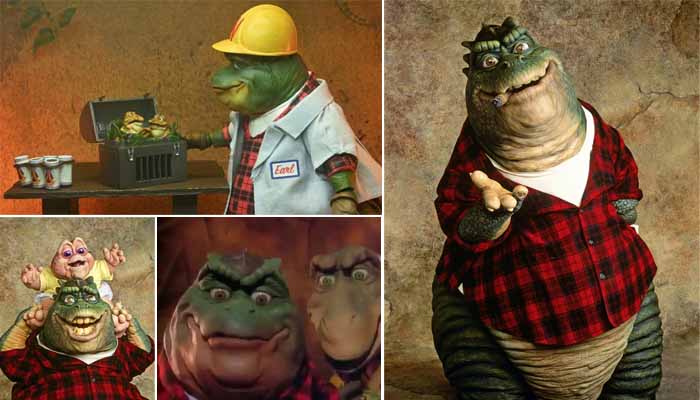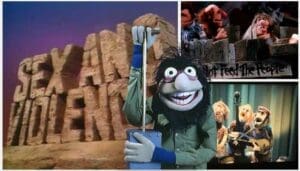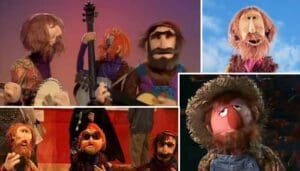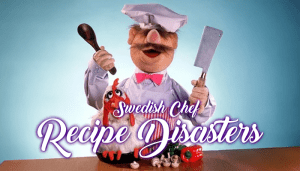“Honey, I’m Home!” (And Why We Still Can’t Get Enough of This Mesozoic Mess)
Let’s fire up the time machine and set the dial for the glorious, flannel-clad, neon-splashed 90s. It was a time of questionable fashion choices, the nascent internet screeching its dial-up song, and, most importantly for our purposes, a groundbreaking family of animatronic dinosaurs gracing our television screens. We’re talking, of course, about Dinosaurs. And who could forget its perpetually beleaguered, often bewildered, and hilariously long-suffering patriarch, Earl Sneed Sinclair?. This 43-year-old Megalosaurus wasn’t just your average dino dad; he was a walking, talking (and frequently yelling) embodiment of middle-class malaise, served up prehistoric style.
This trip down memory lane is dedicated to celebrating Earl – not necessarily for his triumphs, because, let’s be honest, were there many? Instead, we’re here to revel in the sheer comedic gold he unknowingly mined from the bedrock of his daily existence. His life as a “Tree Pusher,” a husband constantly outmaneuvered, and, perhaps most famously, the primary target of a certain frying-pan-wielding toddler, was a masterclass in suffering for our amusement. His classic entrance line, “Honey, I’m home!” , often felt less like a cheerful greeting and more like the weary sigh of a dinosaur bracing for the inevitable domestic impact. The enduring appeal of Earl Sinclair lies in his spectacular, consistent, and utterly hilarious failures. He stands as the prehistoric ancestor to every sitcom dad who just can’t seem to catch a break, making his struggles, however ancient, universally funny. His character is largely defined by his thankless job, his chaotic family, and his own endearing, if often frustrating, dim-wittedness. The humor erupts from the colossal clash between his simple desires – a moment of peace, a modicum of respect, perhaps a 90-inch TV screen – and the relentless, pandemonium-filled reality he faced daily. This made him a prehistoric punching bag, but a strangely lovable one, because his struggles, though magnified to Mesozoic proportions, often echoed common, everyday frustrations.
Earl Sinclair: A Tree-Pusher’s Guide to Corporate Misery (and Why B.P. Richfield Was the Boss from Hell… literally)

So, what was Earl’s esteemed career path in the bustling metropolis of Pangaea, 60,000,000 BC?. He was a “Tree Pusher” at the WESAYSO Development Corporation. Let that job title marinate for a moment. His primary professional responsibility was, quite literally, to knock down trees. It’s a job with a clear, if somewhat environmentally dubious, objective. The WESAYSO corporation, a name that practically screams “because we said so, that’s why!” , was the walking, roaring embodiment of unchecked corporate greed. They were regularly depicted cooking up schemes to further exploit their workers and, as a delightful bonus, wreak havoc on the planet for even the most marginal profit increase. The show wasn’t subtle about its targets, with character and company names like Sinclair (a nod to Sinclair Oil), Richfield, Phillips, Hess, B.P., and Ethyl all being direct references to petroleum companies and products , constantly underscoring the series’ environmental and corporate commentary.
If Earl’s job was designed to be soul-crushing, his boss, Bradley P. Richfield, was the one gleefully operating the crusher. Richfield, an imposing Triceratops visually enhanced with the intimidating frill spikes of a Styracosaurus , was the quintessential boss from hell. Aggressive, heartless, and possessing a temper that could rival a volcanic eruption , Richfield made Earl’s work life a daily exercise in misery and humiliation. One of the most memorable (and cringeworthy) interactions is the infamous “raise” scene. Earl, burdened by the financial needs of his “growing family,” musters the courage to ask for a raise. Richfield’s response is a masterclass in managerial cruelty: “You don’t need more money, you need less family!” He then proceeds to psychologically maneuver Earl into a position where he essentially quits his job, all while Earl remains pathetically deferential. The scene culminates with Earl’s meek “uh th-thank you, sir,” a perfect, bitter cherry on top of this humiliation sundae. Richfield’s parting wisdom? “No dreams, Sinclair. No dreams for you. You are what you are and that’s all you’re ever gonna be. Except not with this company”. This isn’t just a tough boss; this is a one-dino dream-demolition service.
The WESAYSO storyline, with Earl as its unwitting pawn, served as a biting satire of unchecked capitalism and blatant environmental disregard. Earl, described as a “thick-headed and suggestible” Megalosaurus , was the perfect, albeit unfortunate, cog in this destructive corporate machine. He was often too dim-witted or too desperate to provide for his family to truly fight back against the system that exploited him. Richfield wasn’t just a mean boss; he was the personification of the exploitative nature of such corporations. The humor in these workplace scenarios often stemmed from the extreme portrayal of this power dynamic and Earl’s utter, almost heroic, inability to navigate it effectively.
The Sinclair Household: Where Sanity Went to Go Extinct (And Everyone Had a Bone to Pick with Earl)
If Earl thought work was tough, home offered little respite. The Sinclair household was a comedic battlefield, and Earl was usually on the losing side. To truly appreciate the domestic gauntlet Earl ran daily, one needs a scorecard of his primary antagonists:
| Antagonist | Relationship to Earl | Primary Weapon/Tactic | Iconic Quote/Scenario Associated |
|---|---|---|---|
| Baby Sinclair | Youngest Son | Frying Pan, Cuteness as a Weapon, Demands | “NOT THE MAMA!” |
| Ethyl Phillips | Mother-in-Law | Cane, Sarcasm, Constant Belittling | “Fat boy” , Buried Alive |
| B.P. Richfield | Boss (Work “Family”) | Tyrannical Power, Verbal Abuse, Job Threats | “THANK ME!” |
The Reign of Baby: “Not the Mama!” and Other Daily Traumas
Ah, Baby Sinclair. The youngest of the Sinclair clan, this infant was a pop culture phenomenon, largely due to his unforgettable catchphrases: “I’m the baby, gotta love me!” and, of course, the skull-rattling, often pan-accompanied, “NOT THE MAMA!”. This wasn’t just a cute, precocious baby; this was a domestic despot in diapers, a tiny tyrant who ruled the roost with an iron fist (and a surprisingly strong grip on kitchenware).
One of the most persistent and hilarious running gags was Earl’s desperate, and consistently failing, quest to get Baby to acknowledge him as “Daddy”. There’s a particular scene that captures this tragicomedy perfectly: Baby seems to be on the verge of uttering the coveted word, stringing together “Da” and “Dee.” Earl, overcome with a rare surge of paternal joy, exclaims, “Frannie! He loves me, listen to him!” only for Baby to unleash a triumphant, full-throated “NOT THE MAMA!”. The comedic genius lies in that fleeting moment of hope so brutally, and hilariously, crushed. The sheer physical comedy of a giant Megalosaurus being repeatedly bested, and often physically assaulted, by an infant is inherently funny. It’s the ultimate subversion of patriarchal authority, played for maximum laughs. This dynamic, with Baby as the uncontrollable, demanding id, hilariously amplified the everyday chaos parents often face. Earl’s reactions—a potent cocktail of frustration, physical pain, and a deep, desperate yearning for his youngest son’s affection—are a comically exaggerated reflection of very real parental struggles. The show’s creators even admitted that as long as Baby was hitting his father over the head with a pot, they “could use that to hide anything,” allowing for more subversive content to slip by under the guise of slapstick.
Ethyl: The Mother-in-Law Who Came to Stay (And Torment with a Cane)

If Baby Sinclair was Earl’s tiny tormentor, Ethyl Phillips was his geriatric one. Fran’s mother, Earl’s mother-in-law, and the undisputed bane of his existence , Ethyl Hinkleman Phillips was a force of nature. Though wheelchair-bound, she was armed with a razor-sharp tongue and an even more formidable cane, both of which she wielded with immense pleasure to make Earl’s life a living heck. Her favorite term of endearment for Earl? The ever-so-charming “Fat boy”.
The animosity was so palpable that Earl eagerly anticipated “Hurling Day,” a dinosaur custom where 72-year-olds were ceremonially tossed off a cliff into a tar pit. When his son Robbie innocently asked, “Dad, after you throw grandma into the tar pit, is there life after that?” Earl’s deadpan reply, “For me there is,” perfectly encapsulated their loving relationship. And then there was the unforgettable incident where Earl, mistakenly believing Ethyl had shuffled off her mortal coil, buried her alive – a full eight feet under, because six just wasn’t enough for his mother-in-law. His subsequent apology card was a masterpiece of insincere remorse: “What can I say? I’ve ruined your day, and made you all angry and surly. How could I make such a thoughtless mistake? And bury your mother too early.” He even tried to justify his actions to Fran with the impeccable logic, “Aw come on, Fran! They wouldn’t make these cards if it didn’t happen all the time!”. Ethyl, in her own unique way, was the comedic embodiment of every nightmarish in-law story ever told, cranked up to a prehistoric eleven. Her relentless antagonism provided a constant source of suffering for Earl, and consequently, endless amusement for the audience. This wasn’t just verbal sparring; the physical comedy of the cane attacks and the dark humor surrounding events like “Hurling Day” and the premature burial highlighted the extreme, yet comically accepted, level of dysfunction in their relationship.
Fran, Robbie, and Charlene: The (Slightly) More Normal Ones (Who Still Drove Earl Nuts)
Beyond the direct assaults from Baby and Ethyl, Earl also had to navigate the (slightly) more conventional challenges posed by the rest of his family. His wife, Fran, an Allosaurus , was often the voice of reason, or at least, the voice of weary exasperation. She skillfully managed the household and their three children – Robbie, Charlene, and Baby Sinclair – frequently finding herself dealing with the fallout from Earl’s latest harebrained scheme or clueless complaint. Their everyday interactions, such as Fran inquiring about the cost of a tutor and Earl lamenting that it’s “the same amount as a 90 inch TV screen, because that’s the way my life works” , perfectly captured the timeless financial squabbles and frustrations of married life, just with a dinosaur twist.
Then there were the teenage terrors (or, at least, teenage sources of bewilderment for Earl). Robbie, their Hypsilophodon son, often challenged Earl’s more traditional, and frankly outdated, views , representing a more progressive younger generation. Charlene, the fashion-obsessed valley girl daughter , added her own unique brand of teenage angst and materialism to the chaotic family mix. Together, they represented the typical generational clashes, further highlighting Earl’s profound disconnect with the (then) modern world, despite living in 60,000,000 BC. Even without the direct physical and verbal assaults from Baby and Ethyl, Earl was still the classic overwhelmed sitcom dad, perpetually trying (and usually spectacularly failing) to navigate the complex demands of his wife and teenage children. These more “traditional” sitcom conflicts grounded Earl’s problems in relatable family dynamics, even amidst the more outlandish prehistoric elements. This layering of his suffering – from extreme antagonists to the everyday grind of family life – made his comedic plight all the richer.
Earl’s Words of Wisdom (That He Probably Should Have Kept to Himself)
Earl Sinclair wasn’t exactly a candidate for Pangaea’s philosopher king. In fact, his own rather blunt self-assessment was, “Dinosaurs. Big laughs. Small brains”. Yet, this charmingly “thick-headed” Megalosaurus never let a little thing like a small brain stop him from dropping some truly memorable, if highly questionable, pearls of wisdom.
Consider his take on education: “School is not for asking questions, it’s a place you go to be OUT OF THIS HOUSE!”. A sentiment that has likely echoed in the hearts of parents across millennia. Or his views on the legal profession: “I know they just crawled out of the sludge and I hate to be critical of other life forms, but God, I hate lawyers”. Some opinions, it seems, are timeless. When it came to family planning, his philosophy was brutally practical, if a tad chilling: “The kids are fine. If not, we can make more”. And who could forget his unique grasp of scientific principles, as demonstrated during the “Family Challenge” episode? When quizzed about the elemental nature of things, Earl confidently categorized fire as a “Vegetable.” And water? “Water is the opposite of fire, which we have previously established as a vegetable. What’s the opposite of a vegetable? Fruit. So, water is a fruit! Fruit is not a vegetable, so it has to be either an animal or a rock. We know it’s not an animal. Therefore, fruit is a rock.” It’s the unwavering confidence with which he delivers these pronouncements that truly sells the comedy.
Earl’s brand of “wisdom” is funny precisely because it’s so spectacularly, confidently wrong, or shockingly blunt. These quotes aren’t just random funny lines; they meticulously build his character as someone perpetually out of his depth, yet still valiantly trying to make sense of the world in his own limited, often baffling, way. This reinforces his “thick-headed” nature but also makes him strangely endearing. We laugh at his ignorance, but often there’s a kernel of relatable, albeit poorly expressed, frustration or a yearning for simplicity buried within his pronouncements. His verbal blunders are often as comically disastrous as his actions, cementing his role as a lovable buffoon.
Conclusion: Why Earl Sinclair, the Prehistoric Screw-Up, is Still a Comedic Fossil We Dig
Earl Sinclair was so much more than just the bellowing target for Baby’s infamous “NOT THE MAMA!” war cry and accompanying frying pan assault. He was the bruised, battered, yet somehow still beating heart of a show that ingeniously used a Stone Age family to poke fun at very modern anxieties. His daily battles with a soul-crushing job, a terrifyingly tyrannical boss, a demonic infant, a mother-in-law who seemed to hail from the seventh circle of heck, and the general chaos of family life were, in many ways, our struggles too – just with more scales, bigger teeth, and a much higher chance of being eaten by your boss’s daughter’s disappointing boyfriend.
Through Earl’s perpetual bumbling and often misguided efforts, Dinosaurs cleverly tackled surprisingly weighty themes like corporate greed, environmentalism (sometimes by literally having Earl become a tree ), and the inherent absurdities of family dynamics. He was the unwitting, often unwilling, vehicle for some remarkably sharp social satire, proving that important messages can indeed be delivered in the most unexpected, and prehistoric, packages. The show’s genius lay in making this “incredibly overweight, even for a dinosaur” everydino a comically distorted mirror reflecting our own societal absurdities.
So, the next time you’re feeling overwhelmed by the demands of your job, or your child is behaving like a tiny, untamed cave demon, or your in-laws are driving you to the brink of your own personal extinction event, take a moment to remember Earl Sinclair. He stands as enduring proof that even with a self-professed “small brain” , one can leave a giant, indelible comedic footprint on the world. And for that, we should all probably bellow, “THANK ME!”… or, you know, thank him for the laughs.
Feeling a wave of 90s nostalgia? Do yourself a favor and go rewatch Dinosaurs. It’s a prehistoric blast from the past that, much like a well-preserved fossil, remains hilariously relevant and remarkably funny even today.




